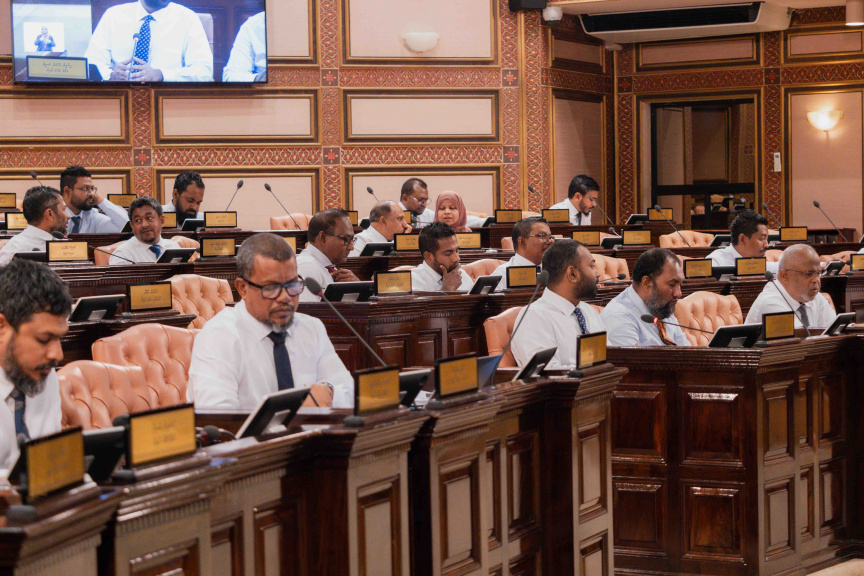
Lawmakers captured during a parliamentary sitting: The Parliament has passed the amendment to SEZ Act despite concerns over rushed proceedings. (Photo/People's Majlis)
Parliament, on Wednesday, has passed a major amendment to the Special Economic Zone (SEZ) Act, designating ‘sustainable townships’ as special economic zones, despite opposition calls for more time to study the bill.
The government-backed bill sponsored by ruling People's National Congress (PNC)’s Baarah MP adds a new chapter to the SEZ Act outlining criteria for sustainable townships. These zones are intended to offer modern services and amenities, including luxury tourism facilities, international-standard hospitals, and hospitality training centers.
To qualify, investors must commit over USD 500 million. The bill also requires that at least 60 percent of operational energy be renewable, and mandates food production facilities to reduce imports.
Parliament’s Whole House Committee passed the bill during Tuesday’s meeting despite a proposal from main opposition Maldivian Democratic Party (MDP)’s Galolhu South MP Meekail Ahmed Naseem seeking additional time to review the bill, citing need for consultation with stakeholders including the Maldives Association of Tourism Industry (MATI), the Tourism Ministry, the Economic Ministry, and the public.
However, PNC’s group leader and Inguraidhoo MP Ibrahim Falaah said the bill was essential for economic recovery and accused the MDP of obstructing national progress.
PNC used its supermajority in the Committee to pass the bill after rejecting Meekail’s proposals. In this regard, 55 PNC lawmakers voted to pass the bill, while the nine votes against passage of the bill came from MDP lawmakers.
The Committee’s report on the bill was presented at Wednesday’s sitting. The bill was passed by the votes of 46 lawmakers, with 10 MDP lawmakers voting against passage of the bill.
The bill also outlines tax incentives for investors developing sustainable townships and specifies the government’s taxation framework for such zones.